![Art Ensemble of Chicago: Non-Cognitive Aspects of the City: Live at Iridium [2 CDs] (Pi Recordings) Art Ensemble of Chicago: Non-Cognitive Aspects of the City: Live at Iridium [2 CDs] (Pi Recordings)](https://www.teuthida.com/productImages/misc3/artChicagoIridium.jpg)
In Stock
Quantity in Basket: None
Log In to use our Wish List
Shipping Weight: 8.00 units
EU & UK Customers:
Discogs.com can handle your VAT payments
So please order through Discogs
Sample The Album:
Roscoe Mitchell-sopranino, soprano, alto, tenor saxophones, flute, piccolo flute, percussion
Don Moye-drums, African drums, congas, bongo drums
Jaribu Shahid-bass, electric bass, percussion
Corey Wilkes-trumpet, pocket trumpet, flugelhorn, percussion
Joseph Jarman-sopranino, alto, tenor saxophones, flute, bass flute, percussion, vocals
Click an artist name above to see in-stock items for that artist.
UPC: 808713002027
Label: Pi Recordings
Catalog ID: PI 20
Squidco Product Code: 6433
Format: 2 CDs
Condition: New
Released: 2006
Country: USA
Packaging: 2 CDs in a single Jewel tray
Recorded at Iridium Jazz Club, in New York City, New York, on April 2nd, and 3rd, 2004, by Adam Blackburn and Brian Kingman.
"This pair of 2004 concert recordings, Non-Cognitive Aspects of the City: Live at Iridium, could be said to be by the "New" Art Ensemble of Chicago. With the death of Lester Bowie and Malachi Favors, the future of the group was in serious doubt, even with the return of Joseph Jarman. Trumpeter Corey Wilkes and bassist Jaribu Shahid, however, have proven to be excellent successors, inspiring Roscoe Mitchell and Jarman to play at their best. Some of the music on this two-CD set is almost hard bop although a bit eccentric; other selections meander a bit in sound explorations or percussion displays, and others find the group pushing ahead. The Art Ensemble of Chicago was always at their most intriguing live, so a concert recording is the next best thing. Not everything works, but the group never loses your interest, being coherent, constantly creative, and quite unpredictable."-All Music
Artist Biographies
• Show Bio for Roscoe Mitchell "Roscoe Mitchell (born August 3, 1940) is an American composer, jazz instrumentalist, and educator, known for being "a technically superb - if idiosyncratic - saxophonist." The Penguin Guide to Jazz described him as "one of the key figures" in avant-garde jazz; All About Jazz states that he has been "at the forefront of modern music" for the past 35 years. Critic Jon Pareles in The New York Times has mentioned that Mitchell "qualifies as an iconoclast." In addition to his own work as a bandleader, Mitchell is known for cofounding the Art Ensemble of Chicago and the Association for the Advancement of Creative Musicians (AACM). Mitchell was born in Chicago, Illinois. He also grew up in the Chicago area, where he played saxophone and clarinet at around age twelve. His family was always involved in music with many different styles playing in the house when he was a child as well as having a secular music background. His brother, Norman, in particular was the one who introduced Mitchell to jazz. While attending Englewood High School in Chicago, he furthered his study of the clarinet. In the 1950s, he joined the United States Army, during which time he was stationed in Heidelberg, Germany and played in a band with fellow saxophonists Albert Ayler and Rubin Cooper, the latter of which Mitchell commented "took me under his wing and taught me a lot of stuff." He also studied under the first clarinetist of the Heidelberg Symphony while in Germany. Mitchell returned to the United States in the early 1960s, relocated to the Chicago area, and performed in a band with Wilson Junior College undergraduates Malachi Favors (bass), Joseph Jarman, Henry Threadgill, and Anthony Braxton (all saxophonists). Mitchell also studied with Muhal Richard Abrams and played in his band, the Muhal Richard Abrams' Experimental Band, starting in 1961. In 1965, Mitchell was one of the first members of the non-profit organization Association for the Advancement of Creative Musicians (AACM) along with Jodie Christian (piano), Steve McCall (drums), and Phil Cohran (composer). The following year Mitchell, Lester Bowie (trumpet), Kalaparusha Maurice McIntyre (tenor saxophone), Favors, Lester Lashley (trombone), and Alvin Fielder (drums), recorded their first studio album, Sound. The album was "a departure from the more extroverted work of the New York-based free jazz players" due in part to the band recording with "unorthodox devices" such as toys and bicycle horns. From 1967 Mitchell, Bowie, Favors and, on occasion, Jarman performed as the Roscoe Mitchell Art Ensemble, then the Art Ensemble, and finally in 1969 were billed as the Art Ensemble of Chicago. The group included Phillip Wilson on drums for short span before he joined Paul Butterfield's band. The group lived and performed in Europe from 1969 to 1971, though they arrived without any percussionist after Wilson left. To fill the void, Mitchell commented that they "evolved into doing percussion ourselves." The band did eventually get a percussionist, Don Moye, who Mitchell had played with before and was living in Europe at that time. For performances, the band often wore brilliant African costumes and painted their faces. The Art Ensemble of Chicago have been described as becoming "possibly the most highly acclaimed jazz band" in the 1970s and 1980s. Mitchell and the others returned to the States in 1971. After having been back in Chicago for three years, Mitchell then established the Creative Arts Collective (CAC) in 1974 that had a similar musical aesthetic to the AACM. The group was based in East Lansing, Michigan and frequently performed in auditoriums at Michigan State University. Mitchell also formed the Sound Ensemble in the early 1970s, an "outgrowth of the CAC" in his words, that consisted mainly of Mitchell, Hugh Ragin, Jaribu Shahid, Tani Tabbal, and Spencer Barefield. In the 1990s, Mitchell started to experiment in classical music with such composers/artists such as Pauline Oliveros, Thomas Buckner, and Borah Bergman, the latter two of which formed a trio with Mitchell called Trio Space. Buckner was also part of another group with Mitchell and Gerald Oshita called Space in the late 1990s. He then conceived the Note Factory in 1992 with various old and new collaborators as another evolution of the Sound Ensemble. He lived in the area of Madison, Wisconsin and performed with a re-assembled Art Ensemble of Chicago. In 1999, the band was hit hard with the death of Bowie, but Mitchell fought off the urge to recast his position in the group, stating simply "You can't do that" in an interview with Allaboutjazz.com editor-in-chief Fred Jung. The band continued on despite the loss. Mitchell has made a point of working with younger musicians in various ensembles and combinations, many of whom were not yet born when the first Art Ensemble recordings were made. Mainly from Chicago, these players include trumpeter Corey Wilkes, bassist Karl E. H. Seigfried, and drummer Isaiah Spencer. In 2007, Mitchell was named Darius Milhaud Chair of Composition at Mills College in Oakland, California, where he currently lives. Mitchell was chosen by Jeff Mangum of Neutral Milk Hotel to perform at the All Tomorrow's Parties festival in March 2012 in Minehead, England." ^ Hide Bio for Roscoe Mitchell • Show Bio for Don Moye "Famoudou Don Moye, (born May 23, 1946) is an American jazz percussionist and drummer. He is most known for his involvement with the Art Ensemble of Chicago and is noted for his mastery of African and Caribbean percussion instruments and rhythmic techniques. Early life and Detroit Free Jazz Moye was born in Rochester, New York and performed in various drum and bugle corps during his youth, as well as church choir. Moye has commented that he really "didn't have an affinity for the bugle ... and just kind of gravitated towards drums." He also took violin lessons during this time. Moye was exposed to jazz at an early age since his mother worked for a local social club that had a jazz club next door that hosted musicians such as Kenny Burrell and Jimmy McGriff. His family was also musically inclined; his uncles played saxophones and his father played drums. Also, his mother used to take him to various performances as a child, such as "opera under the stars" and to see Mahalia Jackson. Moye went on to study percussion at Wayne State University in Detroit, Michigan. Moye lived in a building with trumpeter Charles Moore, who became his mentor. Moye also played in the groups African Cultural Ensemble, which included musicians from African countries such as Ghana, and Detroit Free Jazz, which was Moore's band. It was at this time that he first encountered the Association for the Advancement of Creative Musicians (AACM) due to the revolving door of musicians in and out of Moore's residence. In early 1968, Moore's band traveled to Europe and Moye decided to live there for the next couple of years, touring and visiting the continent as well as Northern Africa.Art Ensemble of Chicago and The Leaders By 1969, the AEC had augmented into the percussion-less quartet of Roscoe Mitchell, Joseph Jarman (saxophones), Lester Bowie (trumpet) and Malachi Favors Maghostut (bass). The group crossed the Atlantic Ocean and arrived in Europe to perform throughout the continent. Moye at the time was rehearsing and performing in Paris, France, at the American Center for Students and Artists, where musicians such as Art Taylor and Johnny Griffin practiced collectively. When Mitchell met with Moye again at the Center, he asked Moye to join his group, which was already known as the Art Ensemble of Chicago and had issued several recordings including three releases on the European label BYG Actual. These recordings did feature percussion but all percussion was played by Mitchell, Bowie, Favors, or Jarman. After Moye returned to the States in the early 1970s, he played with the Black Artists Group in St. Louis, Missouri before settling in the Chicago, Illinois area. He was also in a duo with fellow percussionist Steve McCall who later was a member of Air with Henry Threadgil while still playing with the AEC. In the mid-1980s, Moye joined The Leaders, a jazz group consisting of AEC member Bowie, Chico Freeman, Arthur Blythe, Cecil McBee, and Kirk Lightsey. Moye has also recorded numerous solo albums as leader of his own band. Moye toured and recorded again with the AEC in the 1990s, which was dealt a blow with the 1999 death of Bowie. Famadou Don Moye refers to his own style of drumming as "Sun Percussion". Other groups he led in the '90s include the Joseph Jarman/Famoudou Don Moye Magic Triangle Band and the Sun Percussion Summit (with Enoch Williamson), the latter of which was "a group dedicated to exploring the traditions of African-American percussion music." " ^ Hide Bio for Don Moye • Show Bio for Jaribu Shahid "Jaribu Shahid hails from Detroit, Michigan, and was raised in a diverse musical climate, playing with local luminaries such as Kenn Cox, Wendell Harrison, Jimmy Wilkins, J.C. Heard, Martha and the Vandellas and others. Principally self-taught, Jaribu's training began in the band of friend Kamau kenyatta and in bass studies with Bob Collins. Around 1975 he was mentored by Faruq Z. Bey and joined the sci-fi band Griot Galaxy. This explorative music, greatly influenced by Sun Ra and the Art Ensemble of Chicago, featured the original concepts by Faruq Z. Bey. This was further realized in 1976 when Tanni Tabal moved to Detroit, establishing the principal rhythm section of his career. In 1978, he moved to Philadelphia and lived with the core of the Sun Ra Arkestra with whom he played intermittenly untils Sonny's passing. In 1979 he had his first opportunity to work with Roscoe Mitchell. This led to his career-long involvement with Roscoe in the Roscoe Mitchell Sound Ensemble and, currently, the Roscoe Mitchell Note Factory. In recent years, Jaribu has been a member of various groups led by master saxophonist David Murray and the Freedom Arts Quartet. Jaribu has recorded with Sun Ra, Roscoe Mitchell, James Carter, David Murray, Geri Allen, Rod Williams, Craig Taborn, Hugh Ragin, Abdoulaye Ndiaye and Blue Dog. He can be heard on the Milt Jackson DVD Vibes Surprise recorded live in Munich. After Malachi Favors' passing, he was invited to perform with the Art Ensemble of Chicago." ^ Hide Bio for Jaribu Shahid • Show Bio for Corey Wilkes "Corey Wilkes has established himself as one of the best improvising trumpeters in the modern era. Having the skill and maturity to approach mainstream repertoire of jazz standards with his own unique sensibilities, he combines them with his deep appreciation of hip-hop. Corey continues to bring his brand of musicianship and talent to the forefront of the genre. As a child, growing up in the suburbs of Chicago, Wilkes was surrounded by the sounds of Blues, R&B, Soul, Funk and Jazz. He picked up the trumpet for the first time at the age of 10 participating in his school band programs. Corey's natural talent immediately began to flourish. His confidence and maturity were well beyond his years. As a student at Rich South High School in Richton Park, Illinois, his hard work and dedication secured him a spot in the Illinois All State Honors Jazz Combo; the first student in the school's history to do so. Corey has also shared the stage with numerous Jazz Masters including but not limited to; Wynton Marsalis, Roy Hargrove, James Moody, Kurt Elling, Von Freeman, Greg Osby, Roscoe Mitchell, Marcus Belgrave, Clark Terry, Harry "Sweets" Edison and Mulgrew Miller. His soulful notes can be heard gracing a variety of contemporary projects including sets by DJ Logic, Osunlade and Josh Deep; tracks on Hidden Beach Recordings Presents: Unwrapped Vol. 4, Kahil El Zabar's Ascension Loft Series as well as Nona Hendryx, Soulive, Meshell Ndegocello and Ledisi." ^ Hide Bio for Corey Wilkes • Show Bio for Joseph Jarman "Joseph Jarman (born September 14, 1937 in Pine Bluff, Arkansas), is a jazz musician, composer, and Shinshu Buddhist priest. He was one of the first members of the Association for the Advancement of Creative Musicians and a member of the Art Ensemble of Chicago. Jarman grew up in Chicago, Illinois. At DuSable High School he studied drums with Walter Dyett, switching to saxophone and clarinet when he joined the United States Army after graduation. During his time there, he was part of the 11th Airborne Division Band for a year. After he was discharged from the army in 1958, Jarman attended Wilson Junior College, where he met bassist Malachi Favors Maghostut and saxophonists Roscoe Mitchell, Henry Threadgill, and Anthony Braxton. These men would often perform long jam sessions at the suggestion of their professor Richard Wang (now with Illinois University). Mitchell introduced Jarman to pianist Muhal Richard Abrams, and Jarman, Mitchell, and Maghostut joined Abrams' Experimental Band, a private, non-performing ensemble, when that group was founded in 1961. The same group of musicians continued to play together in a variety of configurations, and went on to found the Association for the Advancement of Creative Musicians (AACM) in 1965, along with Fred Anderson and Phil Cohran. Jarman's solo recording career began at this time with two releases on the Delmark Label which included non-conforming recording methods, such as spoken word and "little instruments", the latter a technique that Jarman and Mitchell would use to effectiveness in the Art Ensemble. The band he fronted and used during these recordings between 1966 and 1968 included Fred Anderson (tenor sax), Billy Brimfield (trumpet), Charles Clark (bass), Christopher Gaddy (piano) and Thurman Barker (drums). However, in 1969 Clark and Gaddy both died and Jarman disbanded his group. Shortly after his bandmates Clark and Gaddy died in 1969, Jarman joined Mitchell, Maghostut and Lester Bowie (trumpet) in the Roscoe Mitchell Art Ensemble in 1967; the group would be later rounded out with the addition of Don Moye on drums. This band eventually became known as the Art Ensemble of Chicago (AECO). The group was known for being costumed on stage for different reasons; Jarman wore facepaint and has mentioned that it "was sort of the shamanistic image coming from various cultures." The group moved to Paris in 1969 and lived there for many years in a commune that included Steve McCall, the great drummer who went on the form the jazz trio Air with Threadgill and bassist Fred Hopkins. Moving back to Chicago in the 1970s, Jarman lived in a musicians' building in Hyde Park, in Chicago, with Malachi Favors as his roommate. In 1983, he moved to Brooklyn, New York from Chicago and has lived there since that time. Jarman stayed with the Ensemble until 1993, when he left the group to focus on his spiritual practice, "a cleansing process" as he stated. The move wasn't announced at first, leading fans to speculate about Jarman's health when he didn't appear on stage for an AECO Thanksgiving weekend show at the Knitting Factory in 1994. He didn't have much to do with music until 1996 when in January he recorded two CDs, The Scott Fields Ensembles' 48 Motives and the concert, duo CD Connecting Spirits with Marilyn Crispell, which Fields produced. Later in the year his friend and fellow AACM peer Leroy Jenkins asked him to join a trio with him and Myra Melford in Chicago, which would eventually be called Equal Interest. Looking back on those three years without music, Jarman commented that "I didn't realize it, but it actually depressed me in many ways." He was then commissioned to write a chamber orchestra piece, which led him to the realization of how to incorporate his Buddhist teachings into his music. Jarman returned to the AECO in January 2003. Along with the saxophone and clarinet, Jarman also plays (and has recorded on) nearly every member of the woodwind family, as well as a wide variety of percussion instruments. Aside from his work with relatively traditional jazz lineups, he has composed for larger orchestras and created multimedia pieces for musicians and dancers. Jarman is most widely known for his musical accomplishments, but he has also been involved in the practice of Zen Buddhism and aikido. He began his study of aikido in the early 1970s in the Hyde Park neighborhood of Chicago. He began studying Zen Buddhism in 1990 and visited various monasteries in Eastern Asia, including Higashi Honganji Honzon in Kyoto, Japan. A few years later, he opened his own aikido dojo/zendo, Jikishinkan ("direct mind training hall"), in Brooklyn, New York. He is currently a Jodo Shinshu priest, and holds a rank of godan (fifth degree black belt) in aikido." ^ Hide Bio for Joseph Jarman
4/9/2025
Have a better biography or biography source? Please Contact Us so that we can update this biography.
4/9/2025
Have a better biography or biography source? Please Contact Us so that we can update this biography.
4/9/2025
Have a better biography or biography source? Please Contact Us so that we can update this biography.
4/9/2025
Have a better biography or biography source? Please Contact Us so that we can update this biography.
4/9/2025
Have a better biography or biography source? Please Contact Us so that we can update this biography.
Track Listing:
1 Song for My Sister Mitchell, Roscoe 17:00
2 The Morning Mist Art Ensemble Of Chicago 6:47
3 Song for Charles Mitchell, Roscoe 8:52
4 On the Mountain Art Ensemble Of Chicago 19:25
5 Big Red Peaches Mitchell, Roscoe 7:34
6 Odwalla Mitchell, Roscoe 5:21
7 Erika Mitchell, Roscoe 19:59
8 Malachi Mitchell, Roscoe 9:01
9 The J Song Jarman, Joseph 11:46
10 Red Sand Green Water Art Ensemble Of Chicago 14:28
11 Slow Tenor and Bass Mitchell, Roscoe 2:27
12 Odwalla Mitchell, Roscoe 3:59
Pi Records
Improvised Music
Jazz
Art Ensemble of Chicago
July 2006
Chicago Jazz & Improvisation
Quintet Recordings
Search for other titles on the label:
Pi Recordings.


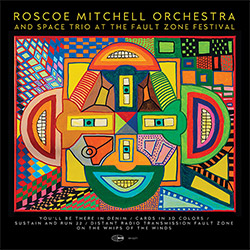
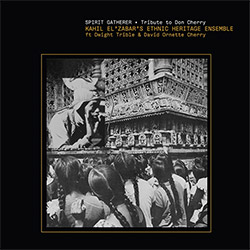

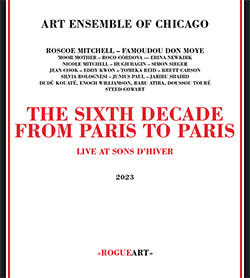

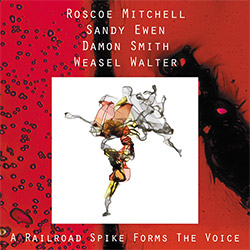
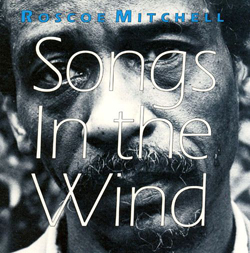
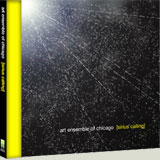
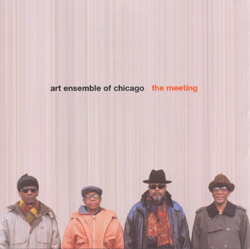
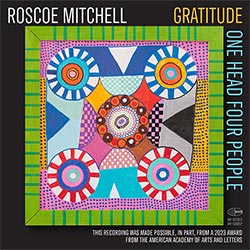
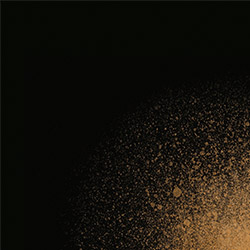

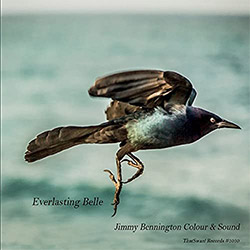

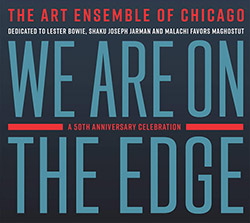

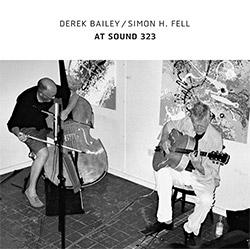

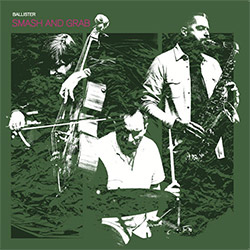


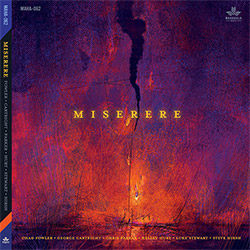
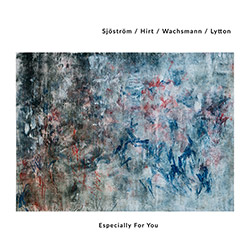
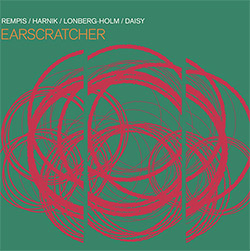





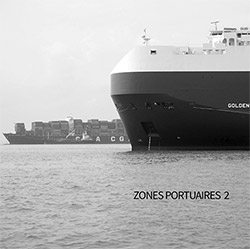
![111 (Michelle / Villamil): Live at Opus 40 [CASSETTE]](https://www.teuthida.com/productImages/misc4/35986.jpg)
![del Pino, Francisco / Charlotte Mundy: The Sea [CASSETTE]](https://www.teuthida.com/productImages/misc4/35987.jpg)

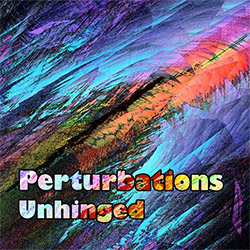

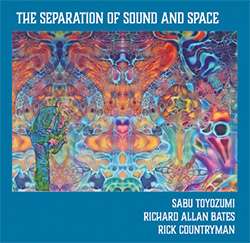
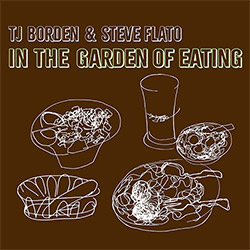

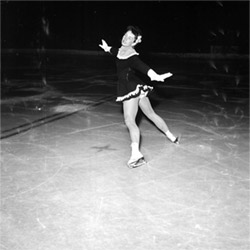
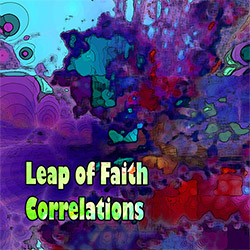

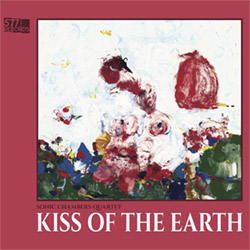

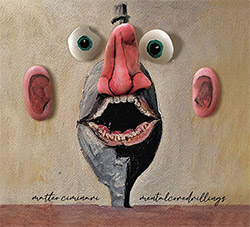
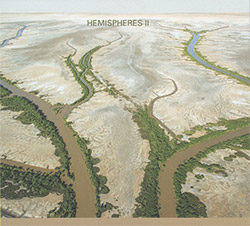
![Niblock, Phill / Anna Clementi / Thomas Stern: Zound Delta 2 [VINYL]](https://www.teuthida.com/productImages/misc4/34623.jpg)
![Yoko, Ono / The Great Learning Orchestra: Selected Recordings From Grapefruit [2 CDs]](https://www.teuthida.com/productImages/misc4/35841.jpg)

![Brotzmann, Peter / John Edwards / Steve Noble / Jason Adasiewicz: The Quartet [2 CDs]](https://www.teuthida.com/productImages/misc4/35975.jpg)
![Brotzmann, Peter / John Edwards / Steve Noble / Jason Adasiewicz: The Quartet [VINYL 2 LPs]](https://www.teuthida.com/productImages/misc4/35976.jpg)
![Thomas, Pat: The Solar Model of Ibn-Al Shatir [VINYL]](https://www.teuthida.com/productImages/misc4/36044.jpg)
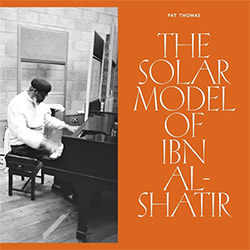



![Rodrigues, Ernesto / Nuno Torres / Guilherme Rodrigues: Whispers In The Moonlight - In Seven Movements [2CDs]](https://www.teuthida.com/productImages/misc4/35765.jpg)



![Cocks, Laura: FATHM [VINYL]](https://www.teuthida.com/productImages/misc4/36055.jpg)













![Schindler, Udo / Sandy Ewen / Damon Smith: Munich Sound Studies Vols. 4, 5 & 6 [3 CDs]](https://www.teuthida.com/productImages/misc4/35966.jpg)
![Turbulence Orchestra & Sub-Units: Smear Out the Difficulties (Double Live) [2 CDs]](https://www.teuthida.com/productImages/misc4/36048.jpg)

![Myers, David Lee : Tin Drop Tear [BOOK w/ DOWNLOAD]](https://www.teuthida.com/productImages/misc4/36030.jpg)

![Ackerley / Prymek / Turner: All Hope With Sleeping Minds [CASSETTE]](https://www.teuthida.com/productImages/misc4/35950.jpg)








![Olencki, Weston : Pearls Ground Down To Powder [VINYL]](https://www.teuthida.com/productImages/misc4/35956.jpg)
![Myers, David Lee: Oculus [2CDs]](https://www.teuthida.com/productImages/misc4/35857.jpg)


![dustsceawung: dustsceawung [CASSETTE w/ Download]](https://www.teuthida.com/productImages/misc4/35753.jpg)




![Halls of the Machine: Atmospheres For Lovers And Sleepers [CASSETTE w/ DOWNLOAD]](https://www.teuthida.com/productImages/misc4/35806.jpg)











![Zorn, John / JACK Quartet: The Complete String Quartets [2 CDs]](https://www.teuthida.com/productImages/misc4/35609.jpg)

![Lonsdale, Eden: Dawnings [2 CDs]](https://www.teuthida.com/productImages/misc4/35480.jpg)







![Sanna, Claudio: Compositori Sardi Contemporanei II [2 CDs]](https://www.teuthida.com/productImages/misc4/35317.jpg)







![Zurria, Manuel: Fame di Vento [3 CDs]](https://www.teuthida.com/productImages/misc4/35167.jpg)

![Electric Bird Noise / Derek Roddy: 8-10-22 [CD EP]](https://www.teuthida.com/productImages/misc4/35970.jpg)








![Elephant9 : Mythical River [VINYL]](https://www.teuthida.com/productImages/misc4/34624.jpg)



![Elephant9 with Terje Rypdal: Catching Fire [VINYL 2 LPs]](https://www.teuthida.com/productImages/misc4/35355.jpg)
![Deerlady (Obomsawin, Mali / Magdalena Abrego): Greatest Hits [VINYL]](https://www.teuthida.com/productImages/misc4/34876.jpg)







![Surplus 1980: Illusion of Consistency [CD]](https://www.teuthida.com/productImages/misc4/35069.jpg)
![Staiano, Moe: Away Towards the Light [VINYL + DOWNLOAD]](https://www.teuthida.com/productImages/misc4/35037.jpg)



![Caveira (Gomes / Sousa / Abras / Ferrandini): Ficar Vivo [VINYL]](https://www.teuthida.com/productImages/misc4/34643.jpg)
![Coley, Byron: Dating Tips for Touring Bands [VINYL]](https://www.teuthida.com/productImages/misc4/17906.jpg)

![Lost Kisses: My Life is Sad & Funny [DVD]](https://www.teuthida.com/productImages/misc4/lostKissesDVD.jpg)